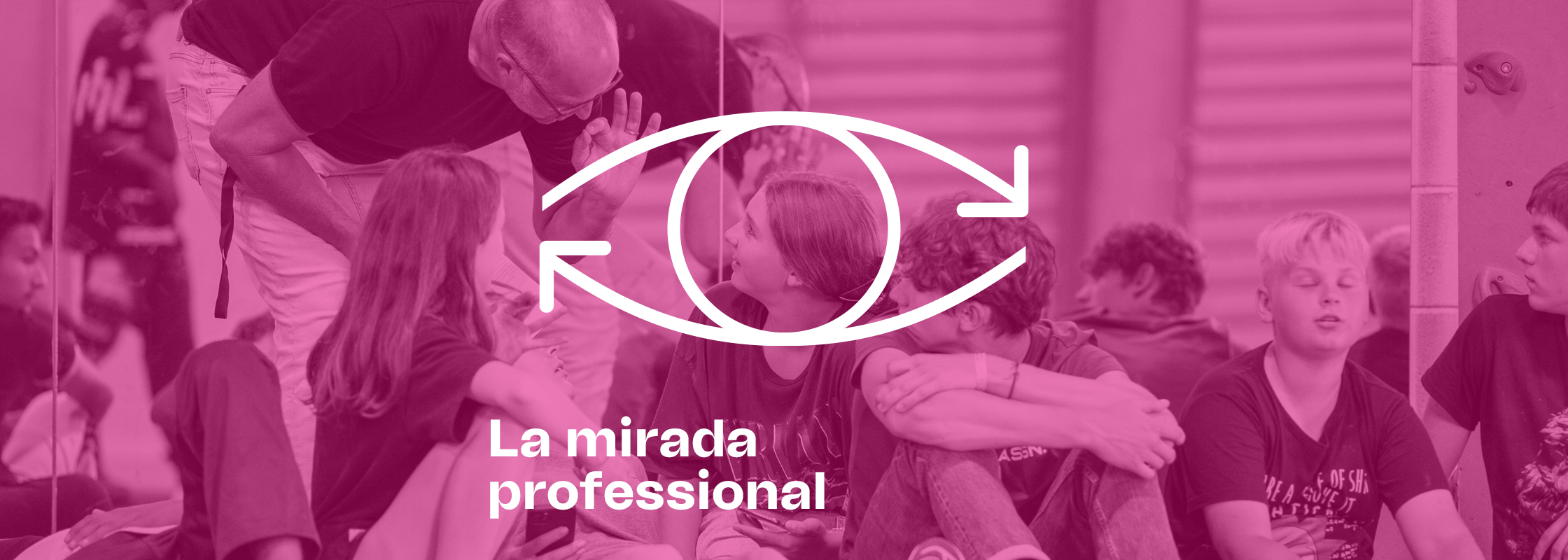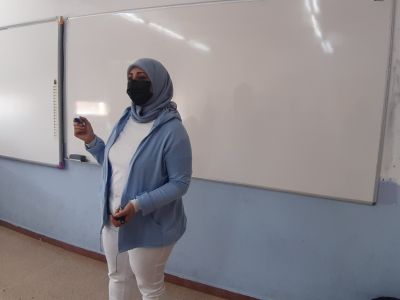What can be done to raise teachers’ expectations of all of their pupils?
26/10/2022

RESEARCH AND ACTION! | EXPECTATIONS OF TEACHERS | THE PROFESSIONAL PERSPECTIVE
Programmes that impact teachers’ expectations enhance the emotional wellbeing and boost the academic achievement of the most disadvantaged pupils. The report “Are programmes that impact teachers’ expectations of their pupils effective?”, recommends considering challenging tasks and providing all pupils with learning opportunities, offering useful and positive feedback and working on socio-emotional aspects.
How can these strategies be effectively applied in schools? Patrícia Rey, headmistress of the Samuntada primary school in Sabadell, and Rosa Clar, headmistress of the Tordària secondary school in Tordera, gave examples of this as part of the event “‘I believe in you’. How can we form a welcoming school that has high expectations of its pupils?”. They did so while engaging with Marc Lafuente, the author of the report and holder of a PhD in Education Psychology, and with Jordi Pàmies, education researcher and holder of a PhD in Cultural and Social Anthropology.
Below we have set out five key elements that arose during the debate:
1. Generating high expectations involves having stable staff and time
According to Rey and Clar, the conditions for teachers to have high expectations of all their pupils involve having stable, cohesive staff and coordination time. “We head teachers can do nothing on our own”, Clar states. Rather, “everyone has to feel represented in the project and must have a defined role within the school”. They have had a stable staff team at her secondary school for three years and she asserts that this has enabled “everyone to reflect together on where we were going” and to lend impetus to everything they had begun working on.
Rey adds that cohesion among teachers is also conveyed in class. “If we want to have high expectations of our pupils, we also need to have high expectations of ourselves and of our colleagues”.
2. Spending time designing work groups and class groups
“Forming the class group, which must be heterogeneous, is one of the most important aspects in ensuring everything runs smoothly”, Clar asserts. As a result, she calls for an effort to devote as much time as needed to this task, particularly on stage changes such as the transition from primary to secondary school, and the same is true about designing cooperative teams. “We have to discuss what potential each child has and how we can help them”, she specifies. Grouping children together based on this prior knowledge “is the only way that everyone can feel acknowledged”.
3. The assessment, one of the biggest moments in the year
“The assessment must build confidence”, Rey maintains. At her school they spend three weeks at the end of each term preparing the assessments of pupils and their feedback. In this respect, she proposes a change of perspective so rather than “quantifying knowledge” and focussing “on the level of attainment of it”, and indeed focussing on inadequacies, instead they assess the progress of pupils, offering suggestions so they can continue to develop. “It is vital to listen to pupils for them to trust you”, she states. Involving them, she adds, also creates dialogue with families, particularly with those who are not familiar with this more skill-based mode of assessment.
↗️ Read the second “Research and Action” newsletter
4. The teaching staff: in agreement
The headmistress of the Tordària secondary school advises drawing up a reference document so teachers can tell students what they are doing well and what they need to improve on in an assertive manner. “It is impossible to guarantee that no one will resist, even subconsciously, but we do need to share a way of helping students to become aware of their mistakes and their successes”. In addition, at school they try to create forums to discuss strategies for improving teaching practice. “If we are happy as a team, it is easier for us to be critical and to be ready to improve”.
5. Support for students must be extended to the family
In order to support pupils well, says Clar, it is vital to involve families. “When you work with expectations of success from all children, the most disadvantaged increasingly see themselves as being less different to the others, but in some cases we do encounter resistance from families to them remaining in education”, she acknowledges. Last year, three of her students who had completed compulsory secondary education and had pre-enrolled on a post-compulsory programme did not formally register after losing ties with the school during the summer.
📩 Would you like to receive the next newsletter in your inbox? Subscribe to the newsletter!
This article is part of the second “Research and action!” newsletter: Teachers and schools with high expectations. What does research tell us and how can it be implemented? Don’t miss the remaining content!
